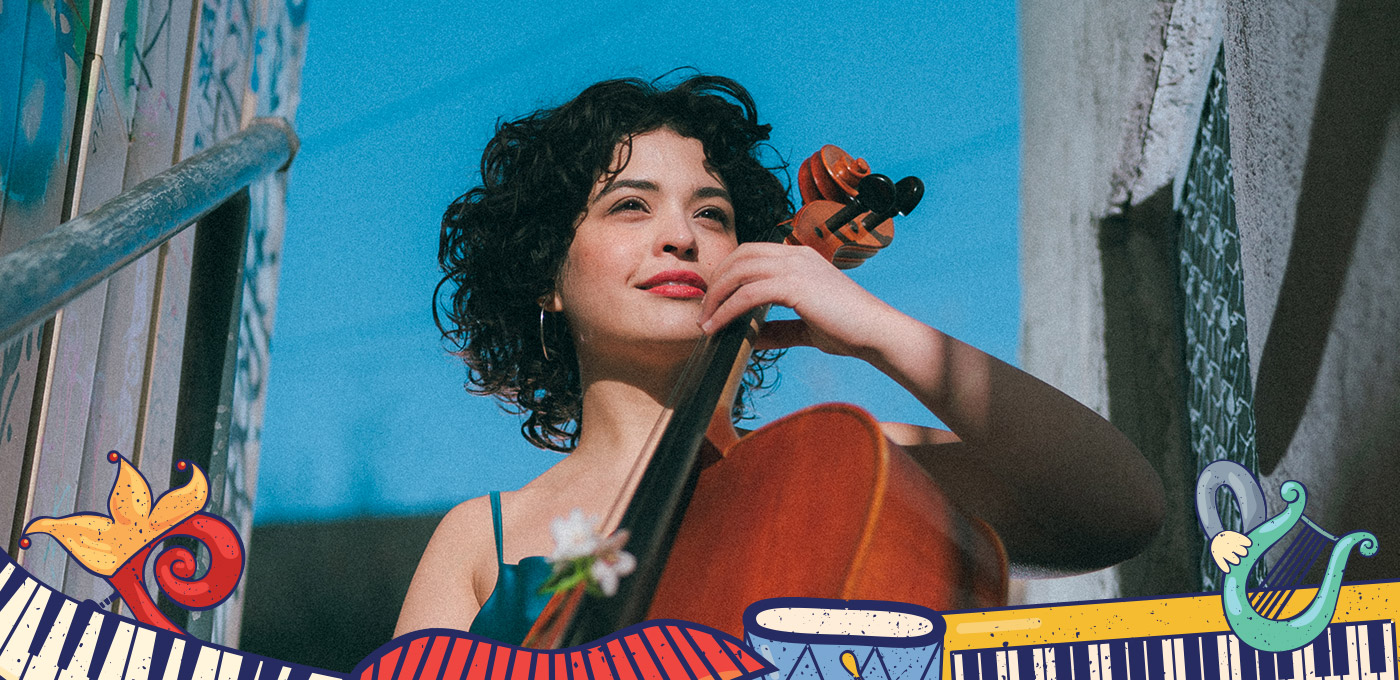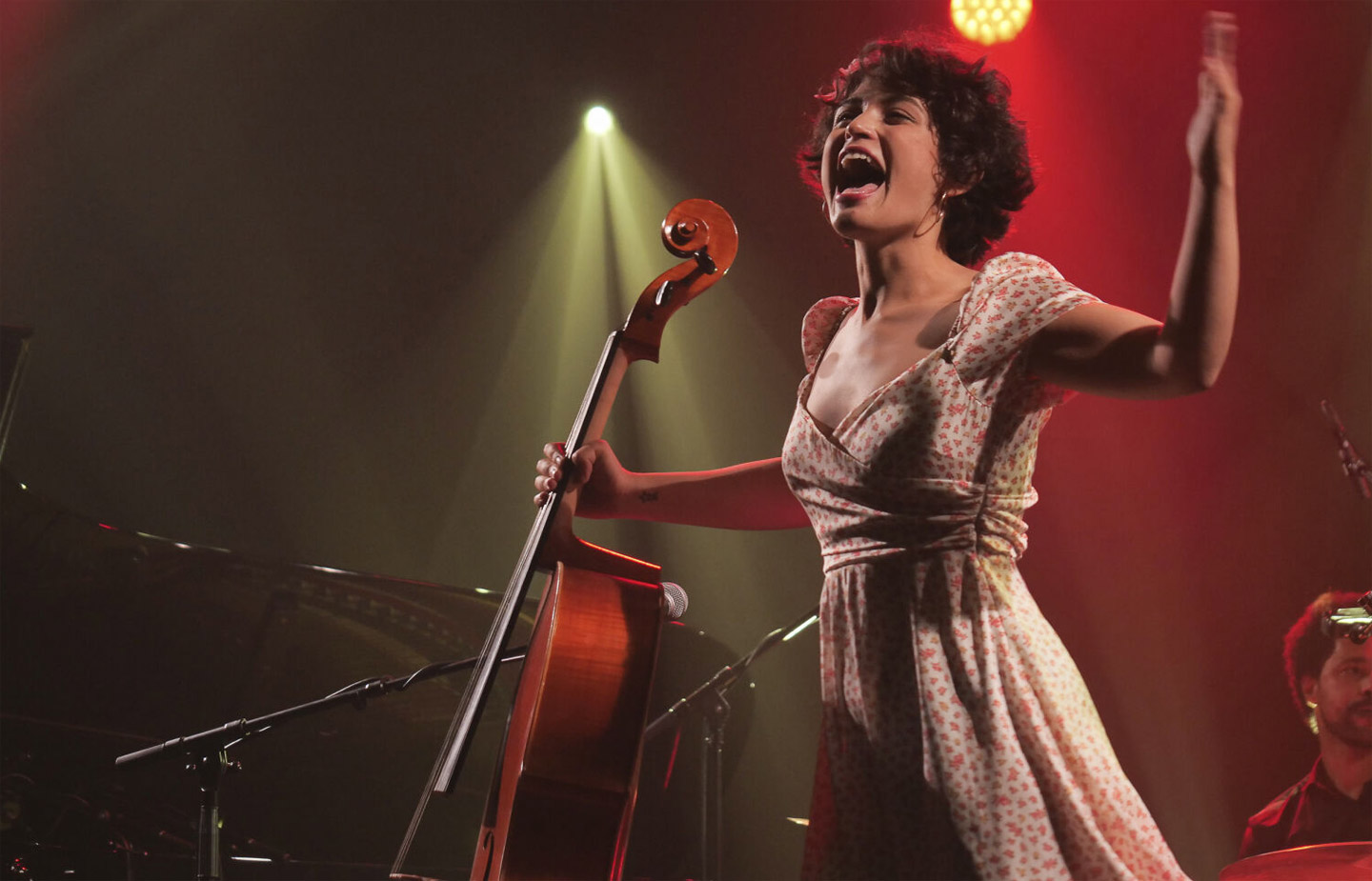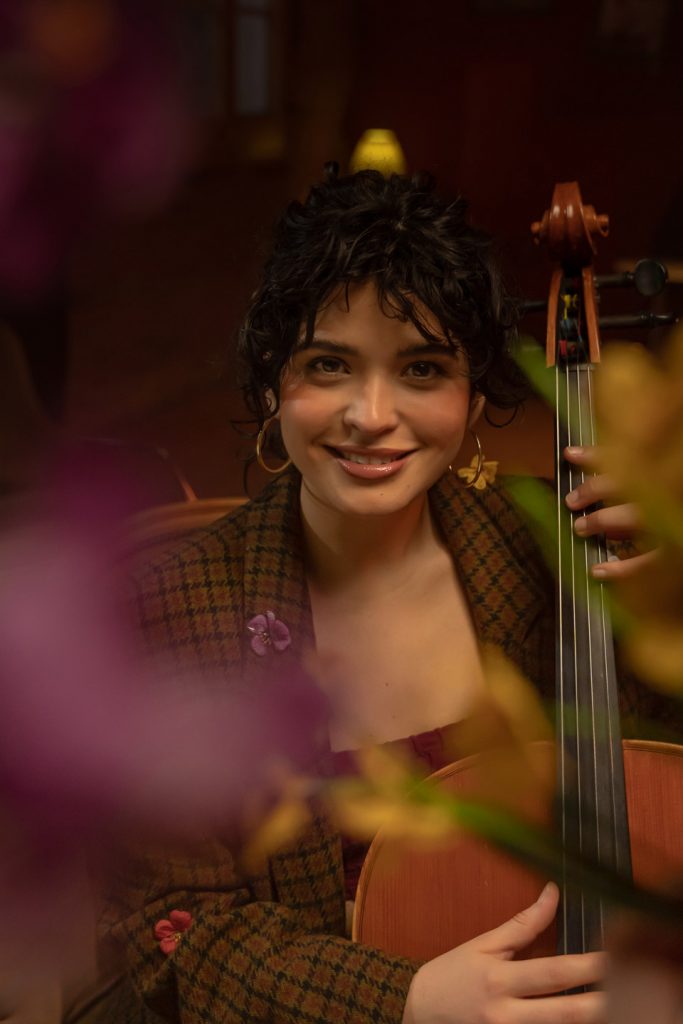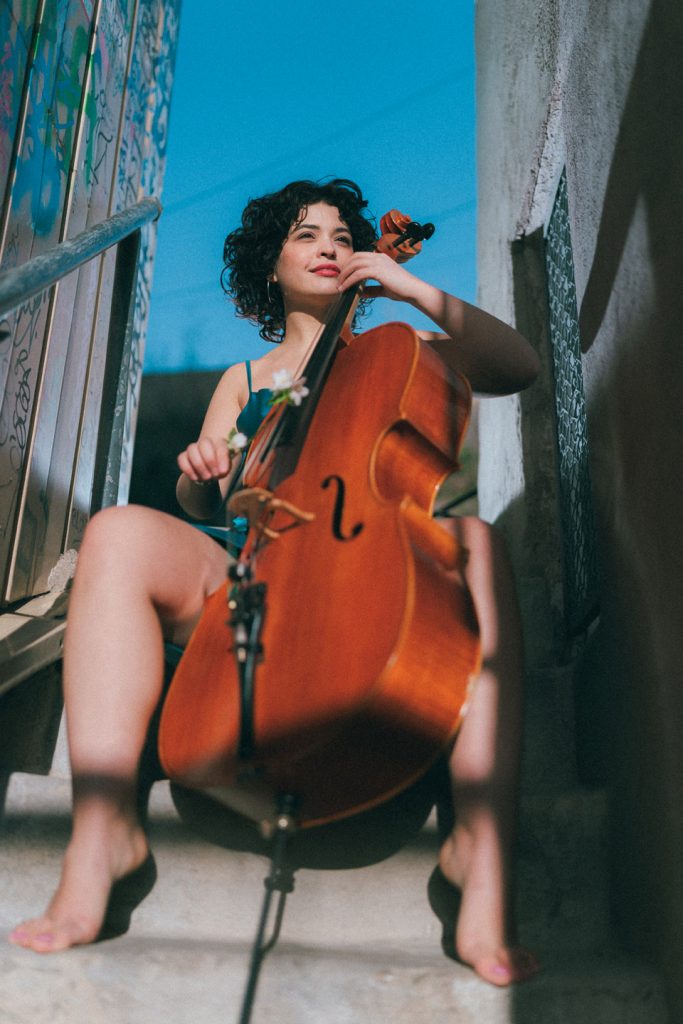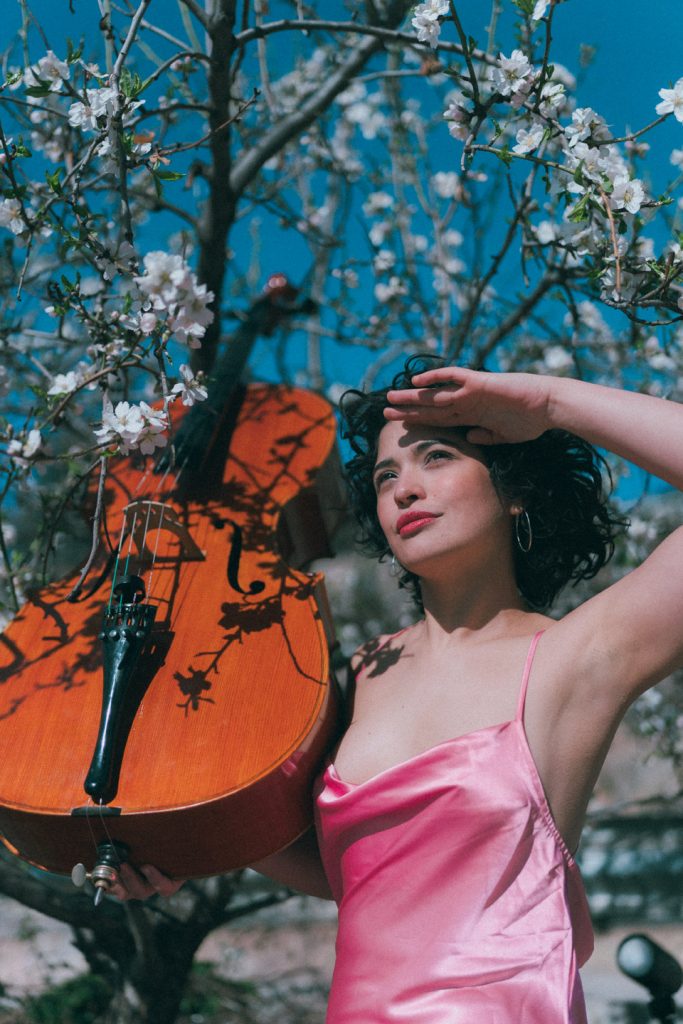Ana Carla Maza – acoustic cello + voice
Norman Peplow – grand piano
Arnaud Dolmen – drums
Carismatica Ana Carla Maza (Spania), considerată de către publicaţia Les dérnieres nouvelles de Jazz, “o veritabilă divă a momentului”, va aduce sunetele afro-cubaneze ale anilor 1950 pe scena festivalului. Ana Carla Maza s-a născut la Havana, în anul 1995, în aceeași zi cu Che Guevara.
“A fi născut pe 14 iunie, ca și Che Guevara, înseamnă Hasta la victoria, siempre venceremos!”, comentează apreciata cantautoare si violoncelistă, care s-a mutat la Paris în 2012 pentru a studia la Conservatorul de Muzică din capitala Franței, iar în prezent trăiește în Spania. Albumele sale încorporează ritmuri latine, melodii pop, armonii jazz și tehnici clasice. Cel mai nou album al său, Caribe, a fost lansat în octombrie 2023.
Ana Carla is a cellist in the traditional and organic sense. You won’t see or hear electronic manipulation or looping of the instrument. She is a musician who has tirelessly committed herself to mastering the craft. Ana Carla relocated from Cuba to Spain with her family when she was 12 years old and at 16, armed with cello and purpose, went in search of Paris, her dream musical destination. She went on to pass the necessary exams and was enrolled at the French Conservatoire of Music. That period, studying and performing around the French capital would set her out on a path of creativity and performance that she has extended to this day, with only 28 years to her name, with an intense touring schedule, and prolific recording history – Caribe is her third album release in 3 years.
The debut single A Tomar Cafe (Latin Version) is a Cuban rooted, Latin refresh of a track that Ana Carla originally penned and brought to life as part of her 2022 album Bahia. The piano drives the groove, with congos, Ana Carla’s subtle cello strokes, and the effervescent and repetitive vocal refrain of, ‘A Tomar Cafe’ (to take coffee). Las Primaveras adopts the rhythm of the Dominican merengue. In the face of the sadness of passing time, it emphasises the happiness of existence. Brazil is brought to life through the groovy bossa shuffle of Bahía (another updated version) and Caribe’s flowing salsa roots are clearly drawn from Ana Carla’s early years. Diana, perhaps the outlier of the set, evokes early Sade and whose lyrics clarify the theme of the album and indeed offer us a simple moda operandi of Ana Carla’s approach to life. “Don’t be afraid, it’s your life, you have nothing to lose”
Havana – where it all started
Cuban composer, cellist and singer, Ana Carla Maza makes a freedom-fulfilling musical reconnection to her Havana upbringing and Latin American roots with the release of Caribe. Self-produced and featuring a brass heavy sextet, it’s a throwback to the Afro-Cuban descarga jams of the 1950s with plentiful and joyful paths to the rumbas of the Caribbean, the tangos of Argentina and flirts with Brazilian bossa-jazz and samba.
With over 150 concerts performed in 2022, following her second album Bahia, Ana Carla’s immersion in her music is, and has always been, absolute (and starting from a very young age). In Caribe, she has thrown caution to the wind, and unlike her previous solo work has solar-powered her songbook, and brought together a Latin jazz band, allowing her to re-colour and patch together her joyful memories of growing up, during the late 1990s, in the wildly exuberant city of Havana. It was a seismic time for the city that had a profound affect on Ana Carla, as a worldwide craze for boleros and cha cha cha had taken hold, following the momentous popularity of the Buena Vista Social Club music and film.
Caribe is a record that was conceived, written and recorded ‘on the road’, on a plane trip to Mexico, by the shores of Lake Annecy, from a castle in Portugal – a predictable and perfect creative method to match Ana Carla’s lightning energy and restless philosophy to life and music. She has grouped a tremendous set of musicians to reflect this fresh, Latin chapter; A Guadeloupean drummer Arnaud Dolmen, two Cubans, percussionist Luis Guerra and saxophonist/flautist Irving Acao, Norman Peplow, a German who loves Honduras on piano, a Frenchman from the south called Fidel Fourneyron on trombone, and Noé Clerc on accordion. And of course, Ana Carla on cello and the lead voice of this special love-letter.
Classically trained, Ana Carla took her first musical steps growing up in the ever-reverberating ‘rumbero’ district of Guanabacaoa, Havana. She vividly remembers looking out of her much-loved Grandmother’s lounge window and listening to and observing Afro-Cuban ceremonial music and ritual (Santería), which took place in the opposite building. At 5 years old , her mother (Mirza Sierra, director of a children’s choir) and father (Carlos Maza, jazz composer and instrumentalist) introduced her to the piano with the help of Miriam Valdés, sister of the living legend Chucho Valdés. She plucked her first cello string at 8 years old when the cello outsized her, and it would become the instrument that she would call her own.
